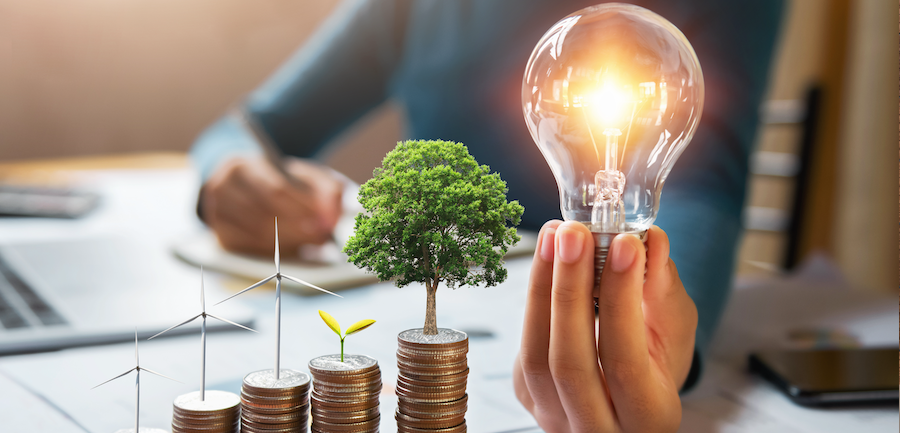
When you start trying to save energy, it helps the entire planet. Here are five ways your energy saving efforts help the environment. Let’s find out more.
We’re told seemingly every day that climate change will be a disaster for humanity. Only last month, the world’s leaders got together in Glasgow for the COP26 conference to look at ways we can slow climate change. But, as well as climate change, several other problems with our environment need to be solved.
Saving energy is always touted as the answer – or at least decreasing our energy consumption from non-renewable sources. The less energy we use, the more we can safeguard the planet for future generations. But why? What exactly does saving energy achieve when it comes to the environment?
In this article, we’ll look at five ways saving energy benefits the environment.
1 – Slowing climate change
The primary cause of climate change is carbon dioxide emissions from power generation. CO2 in the air absorbs heat from the sun and holds it in the earth’s atmosphere. This ever-increasing trapped heat causes the planet’s temperature to rise. It’s known as the ‘greenhouse effect’. The effects of this temperature rise include:
- Rising sea levels
- Extreme weather events
- Higher temperatures across the globe
If we can use less energy from non-renewable sources, power plants will not need to burn as much fossil fuel and carbon dioxide emissions can decrease.
However, the world still needs energy, which is why countries and companies across the globe are replacing fossil fuel energy with power from renewable resources, such as solar, wind and hydroelectric power. In the UK, we are going even further by committing to a target of ‘net zero’ carbon emissions by 2050.
Saving energy doesn’t just help slow climate change. It brings several other environmental benefits too.
2 – Sustain natural resources
As well as being pollutants, another problem with fossil fuels (coal, oil and natural gas) is that they’re finite resources. Once they’re gone, they’re gone.
Although we need to stop burning fossil fuels to reduce carbon emissions, we cannot risk these resources running out altogether. Instead, we need to reduce the demand for fossil fuels and leave them in the ground or under the sea, where they belong.
In addition, countries in the developing world are currently more reliant on fossil fuels compared to places like the UK. From an economic point of view, if fossil fuels become more scarce, the price of energy will rise, which could lead to further problems for those who have less. On the other hand, if the developed world uses less non-renewable energy, those resources could be allocated to where they are really needed.
3 – Protect ecosystems
Getting fossil fuels out of the ground or from under the sea often leaves a massive impact on the natural environment. Think of the environmental effects of a coal mine and its by-products, for example. Transporting fossil fuels around the world can also cause disasters such as oil spills, leading to water pollution and animal extinction. In addition, chemical dumping from coal-powered generating plants makes the water unsafe for swimmers and surfers.
If we can use less non-renewable energy and switch to infinite natural resources, we can start to heal the environment, making the world a better place for humans and animals alike.
4 – Improve your local environment
Cutting down on the energy you consume doesn’t just help the entire planet; it can improve the environment around you. For example, when there are fewer pollutants in the air you breathe, there are many health benefits, not least a healthier respiratory system.
One way to save energy is to buy local products rather than things that have been shipped for thousands of miles around the world. When you do this, you boost your local economy and cut down on the need for preservatives. All good stuff!
5 – The multiplier effect
A final benefit of using less energy is that you save money on your energy bills. You then have the choice to use the money you save to benefit the environment even further.
For example, you could put your savings to good use by investing in solar panels for your home, or storage batteries that hold the energy you generate so you can use your reserves when energy prices are higher. You could even get an electric car.
As we move forward and the world tries even harder to get to grips with climate change, new technologies will emerge to help us. Saving energy is something we all need to do – and every little bit helps.
Start saving energy today
Now you’ve seen the benefits to the environment that saving energy can bring, and you know why everyone is putting such an emphasis on reducing energy consumption. The question now is, what are you going to do to save energy in your home and beyond?
A great place to start is with a smart meter that monitors the energy consumption in your home in real-time. Once you can see how you use energy – including which appliances at specific times of the day – you can start making changes. Small changes can make a big difference, especially as more and more people join the drive to save the planet.
There is a lot still to do. For example, most homes are still heated by natural gas, and electric cars are yet to reach critical mass with the UK’s drivers. However, we are on the right track. Let’s hope we can keep going.
